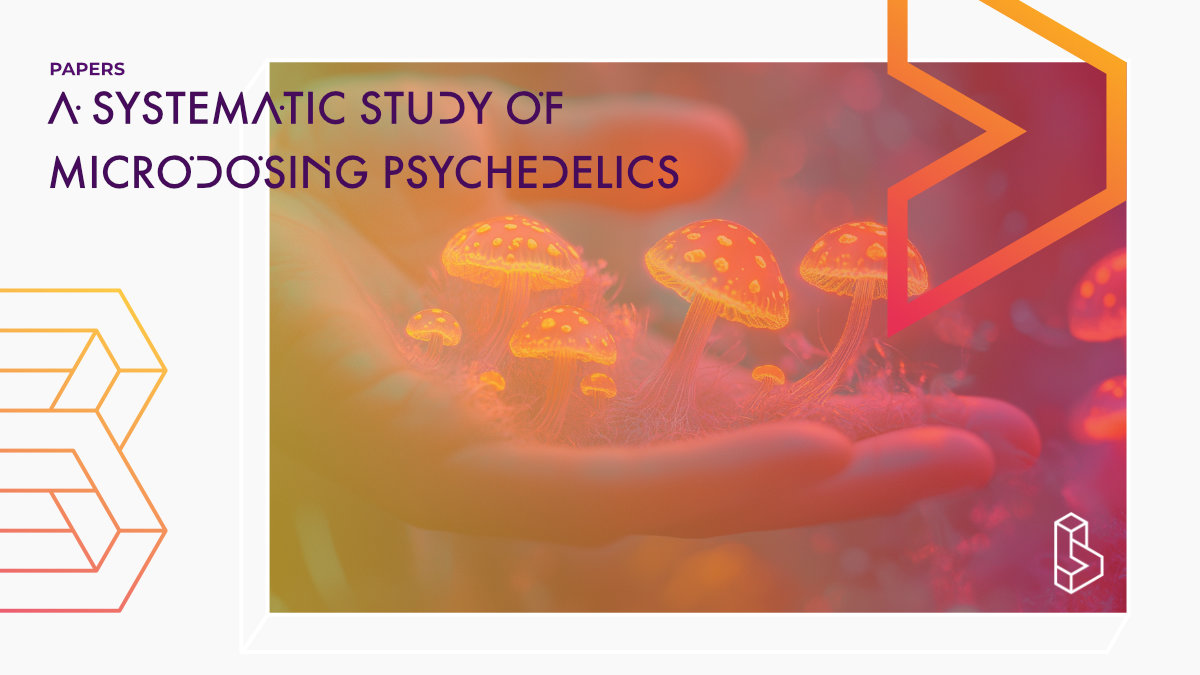This observational study (n=98) investigates the effects of microdosing psychedelics on psychological functioning over six weeks. It finds increased functioning on dosing days, reduced depression and stress, lower distractibility, increased absorption, and increased neuroticism. A second study (n=263) reveals a discrepancy between expected and reported benefits, highlighting the need for controlled research.
Abstract of A systematic study of microdosing psychedelics
“The phenomenon of ‘microdosing’, that is, regular ingestion of very small quantities of psychedelic substances, has seen a rapid explosion of popularity in recent years. Individuals who microdose report minimal acute effects from these substances yet claim a range of long-term general health and wellbeing benefits. There have been no published empirical studies of microdosing and the current legal and bureaucratic climate makes direct empirical investigation of the effects of psychedelics difficult. In Study One we conducted a systematic, observational investigation of individuals who microdose. We tracked the experiences of 98 microdosing participants, who provided daily ratings of psychological functioning over a six week period. 63 of these additionally completed a battery of psychometric measures tapping mood, attention, wellbeing, mystical experiences, personality, creativity, and sense of agency, at baseline and at completion of the study. Analyses of daily ratings revealed a general increase in reported psychological functioning across all measures on dosing days but limited evidence of residual effects on following days. Analyses of pre and post study measures revealed reductions in reported levels of depression and stress; lower levels of distractibility; increased absorption; and increased neuroticism. To better understand these findings, in Study Two we investigated pre-existing beliefs and expectations about the effects of microdosing in a sample of 263 naïve and experienced microdosers, so as to gauge expectancy bias. All participants believed that microdosing would have large and wide-ranging benefits in contrast to the limited outcomes reported by actual microdosers. Notably, the effects believed most likely to change were unrelated to the observed pattern of reported outcomes. The current results suggest that dose controlled empirical research on the impacts of microdosing on mental health and attentional capabilities are needed.“
Authors: Vince Polito & Richard J. Stevenson
Notes on A systematic study of microdosing psychedelics
This paper is included in our ‘Top 10 Articles for Psychedelic Novices‘
Summary of A systematic study of microdosing psychedelics
Microdoses can be as small as one twentieth of a typical recreational dose, sometimes even less. People microdose using a wide range of different substances.
Psychedelics have been associated with marked alterations in cognition, affect, perception, and neurophysiology. Microdosing involves a ‘sub-threshold’ dose, where there are only minimal identifiable acute drug effects.
People follow a variety of different schedules when microdosing, but the most popular is to microdose every three days.
Find this paper
A systematic study of microdosing psychedelics
https://doi.org/10.1371/journal.pone.0211023
Open Access | Google Scholar | Backup | 🕊
Cite this paper (APA)
Polito, V., & Stevenson, R. J. (2019). A systematic study of microdosing psychedelics. PloS one, 14(2), e0211023.
Authors
Authors associated with this publication with profiles on Blossom
Vince PolitoVince Polito is a Senior Research Fellow in the School of Psychological Sciences, and a member of the Biomolecular Discovery Research Centre at Macquarie University.

